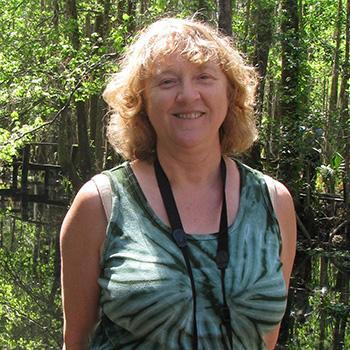- Ph.D. 1982 University of Manitoba (whole-lake phosphorus cycling and the relationship between N:P supply ratio and cyanobacterial blooms)
- M.S. 1976 University of Manitoba
BIO
I was a professor at the University of Vermont from 1992 to 2016. My research here involved further studies of nitrogen fixation, analysis of riverine P spiriling, food web and nutrient limitation studies in Lake Champlain, examination of stable isotope patterns in lakes, remote sensing of cyanobacterial blooms, and paleolimnological study of lake response to changing land use. I spent a sabbatical year in New Zealand in 2000 examining the impact of resuspended sediments on zooplankton feeding in Lake Waihola.
I taught courses in Limnology, Stream Ecology, Wetlands Ecology and Management, and Integrating Analyses of Natural Resource Issues and served as Chair of RSENR's M.S. concentration Aquatic Ecology and Watershed Science.
Awards and Achievements
Area(s) of expertise
Aquatic biogeochemistry (lake and stream), microbial food webs, algal ecology, remote sensing of algal blooms, and paleolimnological assessment of Lake Champlain
Bio
I was a professor at the University of Vermont from 1992 to 2016. My research here involved further studies of nitrogen fixation, analysis of riverine P spiriling, food web and nutrient limitation studies in Lake Champlain, examination of stable isotope patterns in lakes, remote sensing of cyanobacterial blooms, and paleolimnological study of lake response to changing land use. I spent a sabbatical year in New Zealand in 2000 examining the impact of resuspended sediments on zooplankton feeding in Lake Waihola.
I taught courses in Limnology, Stream Ecology, Wetlands Ecology and Management, and Integrating Analyses of Natural Resource Issues and served as Chair of RSENR's M.S. concentration Aquatic Ecology and Watershed Science.
Awards and Achievements
Areas of Expertise
Aquatic biogeochemistry (lake and stream), microbial food webs, algal ecology, remote sensing of algal blooms, and paleolimnological assessment of Lake Champlain
